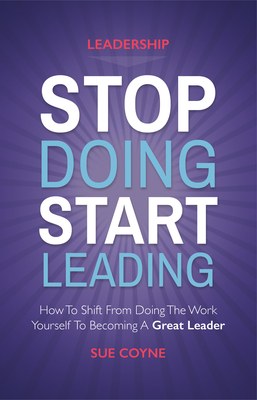A study by Harvard Medical School faculty found that 96 per cent of senior leaders reported feeling some signs of burnout, with one third describing their burnout as extreme.
 This means that the chances are that as leaders we are all suffering some symptoms of burnout, but the question is are we aware of them? And more importantly, what are we doing about it?
This means that the chances are that as leaders we are all suffering some symptoms of burnout, but the question is are we aware of them? And more importantly, what are we doing about it?
What is burnout?
At a physical level burnout comes as a result of persistent and prolonged high levels of stress, which result in a state of complete exhaustion. It’s basically a matter of more energy going out than is coming in.
At an emotional level burnout is when your heart goes out of what you are doing and you no longer get any enjoyment from it. And again you choose to ignore this and stay in that situation regardless of the impact it is having on you.
How can you avoid burnout?
As a leader you are a role model. 70% of what happens in your organisation comes from others imitating your behaviours, so it follows that as a leader you have responsibility to take care of yourself in order to make your leadership and your business more sustainable.
Many leaders fail to take this responsibility seriously and neglect their own health and wellbeing while they focus on work. However, there are simple ways you can improve or maintain your wellbeing for the good of your organisation:
- Clarify what leadership means to you – the idea of the super-hero leader who knows everything and can fix everything is out-dated and is no longer feasible in this fast moving world of information overload. Leaders in the 21st century need to be authentic, trustworthy, collaborative, willing to ask for help and willing to empower others.
- Find your Why – get clear on who you are as a leader and the difference you want to make through your leadership. Then identify what you need to focus on to make that a reality. This helps you to prioritise and focus on where you can add most value and make most difference. It gives you more of a sense of meaning and fulfilment and makes work more enjoyable.
- Find a definition of success that enables you to thrive – many leaders have a definition of success based on achieving financial objectives and getting the rewards associated with those objectives. You need a broader definition of success that enables you to succeed in all areas of your life – I call this Triple H leadership – being happy, healthy and sustainably high performing.
- Track your progress – set up a means of tracking how you are doing in all key areas. Tracking helps you to actualise both the things you are doing well and the parts of your life you want to work on. It helps you to see how you are progressing and make course corrections where necessary. It highlights the small steps you need to take to get to where you want to be. It helps to make behavioural change sustainable.
- Identify your energy drainers and energisers – some examples of energy drainers are saying yes to everything and being over-committed; constant multi-tasking, a belief that all e-mails need to be answered immediately, surrounding yourself with negative people, back to back meetings without time to pause and prepare, trying to do deep thinking work at a time of day when your brain is tired, holding grudges and not forgiving others, striving/struggling/forcing things to happen, consistently working long hours, worrying. Write a list of what drains your energy.
Possible energisers are taking a break every one to two hours to re-energise whether that involves taking a walk, doing some stretching, being mindful, getting some water; surrounding yourself with positive people; focussing and prioritising so that you limit multi-tasking; looking at e-mails only at specific times of day; not having electronic devices on during the hour before you go to bed and not having them in the bedroom. Now write a list of what energises you.
- Prioritise Yourself – make time for regular exercise and things which give you pleasure
- Be Generous – give compliments, praise and appreciation to others.
I believe leaders who create environments in which they or their people risk burnout will not only be unfit to lead they will become obsolete. Take responsibility for making burnout a thing of the past by taking care of your health and well-being and encouraging others to do the same.
 Stop Doing, Start Leading- How to Shift From Doing The Work Yourself To Becoming A Great Leader
Stop Doing, Start Leading- How to Shift From Doing The Work Yourself To Becoming A Great Leader
By Sue Coyne
Available 1st September from Amazon
£15.99.
See also: 5 benefits of offering a sabbatical to help beat the burnout






